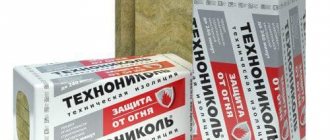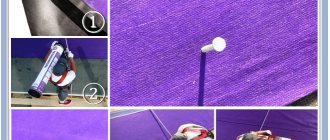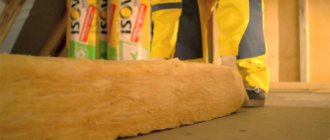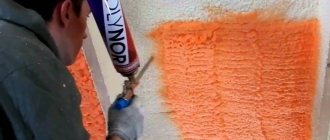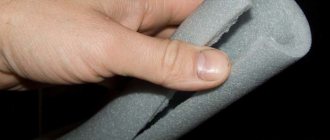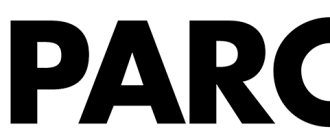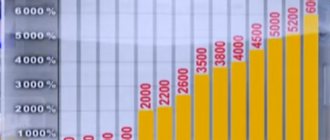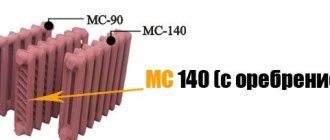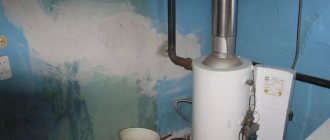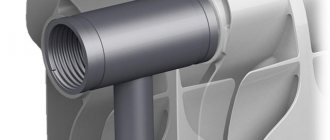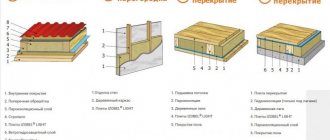There is probably no person in Russia who has come into close contact with construction and repair work who does not know products under the TechnoNIKOL brand. And this is not surprising. In the building materials market, the company offers the buyer heat and waterproof materials, vapor barrier films and membranes, foams, adhesives, sealants, fire retardants, roofing, etc.
There is a particularly large selection of insulation materials made from different raw materials using different technologies. There are several dozen types of them, for all occasions. In this diversity it is easy to get confused not only for the “home craftsman”, but also for the professional builder. The editors of the StroyGuru portal decided to take their visitors on an excursion into the world of TechnoNIKOL thermal insulation.
What it is?
TechnoNIKOL mineral wool is a material with a fibrous structure, and depending on the raw materials used for its manufacture, it can be slag, glass or stone. The latter is produced on the basis of basalt, diabase and dolomite. The high thermal insulation qualities of mineral wool are due to the structure of the material and lie in the ability of the fibers to hold a significant volume of stationary air masses.
To increase the efficiency of heat conservation, the slabs are covered with thin laminated or reinforced foil.
Mineral wool is produced in the form of soft, semi-soft and hard slabs, having standard dimensions of 1.2x0.6 and 1x0.5 m. The thickness of the material varies from 40 to 250 mm. Each type of mineral wool has its own purpose and differs in density and direction of the fibers. The most effective material is considered to be one with a random arrangement of threads.
All modifications are treated with a special water-repellent composition, which allows the material to become wet for a short time and ensures the free removal of moisture and condensation.
The moisture absorption of the boards is about 1.5% and depends on the rigidity and composition of the material, as well as on its performance characteristics. The slabs are available in single- and double-layer versions and are easy to cut with a knife without breaking off or crumbling. The thermal conductivity of the material is in the range of 0.03-0.04 W/mK, the specific gravity is 30-180 kg/m3.
Two-layer models have the maximum density. The fire safety of the material corresponds to class NG , allowing the slabs to withstand heating from 800 to 1000 degrees without collapsing or deforming. The presence of organic compounds in the material does not exceed 2.5%, the compression level is 7%, and the degree of sound absorption depends on the purpose of the model, its technical characteristics and thickness.
A little about the company
The company began its history in 1992. In less than 30 years, the company has grown into a powerful corporation producing building materials for various purposes. Today TechnoNIKOL is a leading European manufacturer of highly efficient and reliable building materials and systems. This result became possible thanks to the symbiosis of world experience with our own scientific developments.
Products are manufactured at 53 factories in 7 countries: Russia, Belarus, Great Britain, Germany, Italy, Lithuania and the Czech Republic. The production company's products are supplied to 95 countries worth about 1.5 billion US dollars per year (103.7 billion rubles in 2022).
The basis for the progressive development of the corporation:
- constant search in scientific centers for new types of materials;
- introduction of advanced technologies;
- training builders in innovative technologies for using cutting-edge materials.
All of the above also applies to the subject of our excursion - TechnoNIKOL brand insulation.
Main characteristics of mineral wool
- High resistance to heat transfer: heat-saving properties are achieved by treating basalt fibers with a binder along the entire length and width. Air retention is achieved in a tight plexus.
- Fire resistance: Non-combustible material increases the fire resistance of the building as a whole.
- Shape stability: resistance to deformation is due to the properties of the rock and the ability to distribute the load evenly over the entire length and width of the slab.
- Hydrophobicity - the slabs are treated with water-repellent properties to avoid waterlogging of the thermal insulation layer.
Fire resistance
Most insulating materials are non-flammable. The flammability group of raw materials has its own marks. For example, “Pir” thermal insulation boards for bathhouses and balconies are marked with the G4 mark. Materials with a lining of fiberglass and foil have indicators G1 and G2.
Extrusion varieties “Eco” and professional insulation with carbon have indicators G 3 and G4. In this case, smoke generation and flammability are marked with D3 and B2. Techno stitching materials are a non-flammable type of heat-insulating material for any material thickness (from 30 to 80 mm). Options based on basalt and basalite sandwich are marked NG (non-flammable).
Thermal conductivity
The performance of each material is different. For example, the thermal conductivity level is:
- technical heat insulators – 0.037-0.041 W/mS;
- extrusion analogues in the form of plates – 0.032 W/mS;
- thermal insulation boards “Pir” – 0.021 W/mS;
- analogues based on basalt – 0.038-0.042 W/mS;
- options for shipbuilding – 0.033-0.088 W/mS.
Density
The density of thermal insulation materials varies. For some types of products it varies from 80 to 100 kg/m3. In general, the density range is from 28 to 200 kg/m3. It directly affects the type of surface. For example, for inclined ones it is better to purchase material with a thickness of 15 cm with a density of 35 to 40 kg/m3. If the indicator is lower, the insulation may sag.
When it is necessary to insulate partitions, the density should be increased. It is better if it is 50 kg/m3. The density of the material for the facade should be greater. Here you need an option in the range of 80-100, 150 kg/m3 and more. In this case, the thickness can range from 10 to 50 mm.
Thermal insulation PIR TechnoNIKOL
Boards based on polyisocyanurate foam are a new word in heat saving technologies. The base structure, consisting of sealed cells and a foil coating, provide the insulation with not only unique thermal conductivity indicators (the best among the company's products), but also many other advantages. The technical characteristics of PIR insulation speak for themselves:
- Thermal conductivity – coefficient 0.021 W/mK, which is superior to both soft wool and extruded polystyrene foam;
- Moisture resistance – no more than 1%;
- Flammability - at the G1-G2 level, the material does not burn, does not support combustion, in some cases it protects adjacent elements of the structure from fire;
- Biostability;
- Resistance to deformation - the slabs do not sag under load and do not shrink;
- High rigidity - successfully achieved despite the low density and small thickness of the insulation layer;
- Additional waterproofing properties;
- Lightweight insulation layer;
- Resistance to dynamic loads;
- Durability – service life of more than 50 years without loss of basic and additional (waterproofing) properties.
Insulating the facade with stone wool using the wet method. Installation of TECHNOFAS plaster facade
As you can see, even among the main types of TechnoNIKOL thermal insulation, you can choose a product to solve a specific construction or restoration problem. The materials offered include conventional thermal insulation and multifunctional protection for walls, foundations or floors. It is also important that the insulation products of this Russian company have an optimal price-quality ratio.
Types and scope of application
Depending on the intended purpose, the following brands are distinguished:
- TechnoNIKOL Rocklight basalt wool is a lightweight universal slab of standard size, optimal for thermal insulation of cottages: attics, frame walls, floors, ceilings and partitions. Characterized by minimal formaldehyde content.
- Technolight - mineral wool for non-load-bearing structures and the inner layer in facade systems.
- Technoblock – medium-density basalt wool slabs for layered masonry and frame walls. They are also recommended to be purchased for the non-external layer in ventilated facades with two-layer thermal insulation.
- Tekhnoruf is a high-density mineral wool for insulating reinforced concrete coatings or roofs with metal corrugated sheets. Use in loaded structures and floors is allowed without the need for a cement screed. This Techno-Nicol series is represented by slabs with a slope (to remove moisture to drainage points), covered with fiberglass and double-density grades.
- Technovent – rigid non-shrinking mineral wool slabs used in ventilated external systems. Use as a middle layer in facades under plaster is allowed.
- Technoflor is an insulation material for floors subject to increased loads; its compressive strength at 10% deformation reaches 50 kPa. It is recommended to buy solid mineral wool slabs of this series when arranging industrial, sports and warehouse premises.
- Technosandwich – TechnoNIKOL mineral wool for placement in three-layer concrete and reinforced concrete panels.
- Technofas is a line for thermal insulation of external walls made of brick, concrete and other permeable building materials, followed by plastering. In turn, it is divided into specialized brands: for insulating loggias, flights of stairs and internal covered structures, slabs for installation without restrictions on the height of buildings, strips for fire-resistant cuts and creating a base with subsequent cladding with clinker or tiles.
- Technoacoustic is TechnoNIKOL mineral wool with randomly woven fibers for soundproofing interior spaces.
We recommend: How to check the solenoid valve of a gas boiler
The scope of application includes residential and industrial buildings. TechnoNIKOL also produces thermal insulation materials based on basalt wool for fire protection of structures made of metal, steel profiles, reinforced concrete and air ducts. Brands with such properties include Techno mats, plates and cylinders. It is easy to notice that most varieties of mineral wool from this manufacturer are specialized; only Rocklight and Technolight are used for general building insulation. Insulation for residential buildings is not produced in rolls; thin stitched mats are intended exclusively for technical purposes.
Pros and cons of products
The undoubted advantages of mineral wool insulation from TechnoNIKOL: environmental and fire safety, affordable cost, good sound absorption and thermal insulation. TechnoNIKOL slabs are easy to install and, when used correctly, retain their beneficial properties for a long time. The thermal resistance of the insulation is assessed positively: 50 mm thick mineral wool with a density in the range of 70-100 kg/m3 provides the same effect as 100 cm of brick and absorbs at least 75% of the noise. The advantages also include the ability of fibers to hydrophobize and remove accidental condensation and moisture. The material is impervious to rodents, mold and aggressive substances.
With the exception of the need for protection from external influences characteristic of the fibrous structure, this mineral wool has no operational disadvantages. The disadvantages include mixed reviews about TechnoNIKOL insulation; not all users rate their quality positively. In particular, coloring of the slabs along the edges, poor compatibility with mineral plasters, and a loose and heterogeneous structure are noted.
There are no complaints about the heat and sound insulation properties and price of this basalt wool; users recommend buying it for unloaded structures and ventilated systems.
Material cost
| Brand name TechnoNIKOL, main purpose | Density, kg/m3 | Dimensions of slabs or mats, mm | Number of pieces per package | Area, m2 | Volume, m2 | Price per package, rubles |
| Technolight Extra, universal mineral wool for unloaded structures | 30-38 | 1200×600×100 | 6 | 4,32 | 0,432 | 580 |
| Technoblock Standard, hydrophobized slabs for siding and ventilated facades | 40-50 | 1200×600×50 | 12 | 8,64 | 880 | |
| Technofas, high-density mineral wool for vertical walls and facades | 131-159 | 1200×600×100 | 3 | 2,16 | 0,216 | 1160 |
| Technovent Optima, for ventilated facade systems | 81-99 | 4 | 2,88 | 0,288 | 1060 | |
| TechnoNIKOL Rocklight, sound and thermal insulation of pitched roofs, attics, frame systems and other structures that do not experience significant external loads | 30-40 | 1200×600×50 | 8 | 5,76 | 580 | |
| Technoacoustic, mineral wool for installation of sound-absorbing layers in floors, suspended ceilings, cladding and cladding structures | 45 | 660 |
Installation of insulation
Each type of insulation has its own installation technology. At the same time, it can vary depending on what kind of building structure is insulated. The standard insulation scheme looks like this:
- calculation of the necessary materials is carried out (insulation, vapor barrier film, timber for sheathing, fasteners, etc.);
- a set of tools and devices is prepared, materials are purchased;
- preparatory work is being carried out;
- insulation is attached;
- if necessary, vapor barrier work is carried out;
- The finishing of the walls is carried out outside and inside, and the ceiling from the inside.
A detailed description of each type of thermal insulation work using TechnoNIKOL insulation can be found on our website Stroy.Guru.Com:
- insulation of roof structures:
- “Is it possible to insulate a roof with foam plastic and how?” – the instructions for insulation are the same for EPS and PIR boards;
- “Insulation of a polyurethane foam roof with your own hands”;
- “Insulating the roof of a private house with mineral wool.”
- ceiling:
- "Ceiling insulation with mineral wool."
- facade:
- “Do-it-yourself insulation of walls with mineral wool”;
- “Do-it-yourself insulation of polyurethane foam walls”;
- “Technology for insulating walls with basalt wool”;
- “How to insulate internal and external walls with foam plastic” - the technology is suitable for extruded polystyrene foam and PIR boards.
- gender:
- “Insulation of polyurethane foam floors with your own hands”;
- “Floor insulation with mineral wool”;
- “How to insulate a floor with foam plastic.”
Advantages and disadvantages
The high consumer demand and popularity of TechnoNIKOL mineral wool are due to a number of undeniable advantages of this material.
- Low thermal conductivity and high heat-saving qualities. Thanks to their fibrous structure, the slabs are able to act as a reliable barrier to airborne, impact and structural noise, while providing high sound absorption and eliminating heat loss in the room. A slab with a density of 70-100 kg/m3 and a thickness of 50 cm is capable of absorbing up to 75% of external noise and is identical to brickwork one meter wide. The use of mineral wool allows you to reduce the cost of heating the room, which leads to significant savings.
- The high resistance of mineral slabs to extreme temperatures allows the material to be used in any climatic conditions without restrictions.
- Environmental safety of the material. Mineral wool does not release toxic substances into the environment, and therefore can be used for both external and internal work.
- Mineral wool is not of interest to rodents , is resistant to mold and is immune to the effects of aggressive substances.
- Good vapor permeability and hydrophobicity ensure normal air exchange and do not allow moisture to accumulate in the wall space. Thanks to this quality, TechnoNIKOL mineral wool can be used to insulate wooden facades.
- Durability. The manufacturer guarantees from 50 to 100 years of impeccable service of the material while maintaining its working properties and original shape.
- Fire resistance. Mineral wool does not support combustion and does not ignite, which allows it to be used for insulation of residential buildings, public buildings and warehouses with high fire safety requirements.
- Easy installation. Minslabs are easy to cut with a sharp knife, do not become painted or break. The material is available in sizes convenient for installation and calculation.
The disadvantages of TechnoNIKOL mineral wool include increased dust formation of basalt models and their high cost. There is also low compatibility with some types of mineral plaster and general heterogeneity of the structure. Vapor permeability, despite a number of positive characteristics of this property, requires the installation of a vapor barrier. Another disadvantage is the impossibility of forming a seamless coating and the need to use personal protective equipment when installing insulation.
We recommend: Navien boiler malfunctions - codes and errors 02, 03, 10 and others, causes and solutions
Meet: TechnoNIKOL products
This company, which today ranks with the largest European manufacturers (more precisely, one of the five largest of them), produces not only thermal insulation. It produces the following products.
Roofing materials:
- Roof tiles;
- roofing felt;
- membranes made of polymeric materials;
- primers;
- mastics.
Insulation:
- Expanded polystyrene made by extrusion;
- mineral (basalt) wool, made in the form of slabs.
Basalt wool: composition and features
The finest stone fibers of this material consist of processed gabbro-basalt rocks. Between these fibers there is a large number of air layers. As a result, the level of thermal insulation of the material is simply excellent. It is no secret that it is the air, being without movement, that has great resistance to heat transfer.
But this is not all the advantages of insulation - it is good not only in cold weather, but also when the temperature rises critically. A very impressive characteristic of TechnoNIKOL mineral wool is its fire resistance. This material does not burn, easily withstanding temperatures of even 1000 degrees Celsius. At the same time, it doesn’t even melt! Even if, unfortunately, a fire occurs, basalt wool will protect your home, preventing walls and ceilings from collapsing. It will block the path of fire, without releasing a drop of harmful substances in the event of a fire.
- You can find out more about the characteristics of basalt wool insulation in the article: Technical characteristics of basalt insulation, advantages, disadvantages and scope of application.
Extruded polystyrene foam TechnoNIKOL
This type of material is increasingly used for insulating houses both here and abroad. After all, it holds heat very well. For example, to achieve an equivalent effect, you need to take a layer of wood 10 times thicker than polystyrene foam (twenty centimeters versus two). So EPS is cheaper. And it is much lighter than other insulation materials, which reduces transportation costs and facilitates installation. Strength and rigidity allow it to be used where softer thermal insulators cannot cope. But this material is afraid of fire - it not only burns, but also releases toxic substances. So it is necessary to comply with fire regulations by providing adequate protection.
Release form
The company offers two types of insulation: in rolls and in the form of sheet material. The second type is thermal insulation made from sheets in the shape of rectangles. For ease of transportation, they are sold in packages of several pieces. The number of sheets in a pack may vary. This depends on the thickness of the insulation and its composition.
For the convenience of the buyer, the manufacturer indicates the number of square meters on the label. This allows you to cover rolled or sheet material taking into account the specific parameters of the base.
Features of insulation
Thermal insulation "TechnoNikol" is a unique product of its kind. It is distinguished from its competitors (Knauf, Izover, Rockwool, etc.) by its versatility, high quality and reasonable price.
Versatility. It is expressed in the areas of application and the materials used. Thus, the company’s products can be found in almost all areas of the national economy (in truth, it is more difficult to say where they cannot be found), but in construction there is no such structural element of the building and its type (residential buildings, garages, baths, saunas, dachas, etc.) .d.), where it is impossible to use TechnoNikol insulation.
This is evidenced by the extensive range of products. But the versatility is most clearly illustrated by the TechnoNIKOL wedge-shaped insulation, the production of which the company was one of the first.
If we talk about the raw materials used for the production of insulation, the company produces thermal insulation materials from all the most popular materials: basalt wool, polystyrene foam, polyurethane foam.
Quality. A manufacturer can find out most accurately about the quality of its products on various forums. Here the company is in complete order - it’s difficult to find a negative review (it’s still possible if you want). The high level of quality is confirmed by the awards received by the brand at various exhibitions of thermal insulation materials.
Acceptable price. The manufacturer strives to cover all market segments. Therefore, on sale you can find the same type of insulation with a budget price and a cost per 1 m2 of several thousand rubles. Such price variability is achieved by changing the density of the material.
Dimensions
In addition to the fact that the dimensions of roll and tile materials are different, the brand provides a flexible approach to each client. Upon individual order, the insulation can be produced in a different format convenient for the customer. The dimensions of standard slabs are 1200x600x100, 1200x600x50 mm. The thickness of the material varies on average from 1 to 15 cm. The sizes of varieties with an edge are 1185x585, 1190x590 mm with a width of 20, 30, 40, 40 mm. The length range is from 600 to 12000 mm, the width ranges from 100 to 1200 mm.
Calculation
Every master and even the customer should know the rules for calculating insulation. Sometimes repair crews deliberately inflate the indicator. To avoid becoming a victim of deception, you can use an online calculator. However, you can do some simple calculations yourself. The fundamental factors are density and approximate area covered.
To make it clearer, we can take a clear example as a basis. It is planned to use 5 cm thick insulation. In this case, the size of the material is not yet taken into account. We need to find its total quantity. The planned height of the facade is 3 m, its perimeter is 24 m.
Calculate the area: 3*24=72 m2.
The thickness of the insulation is converted into meters: 50 mm = 0.05 m.
Multiply the resulting quadrature by the thickness: 72 * 0.05 = 3.6 m3.
After this, all you have to do is look at the packaging labeling. Usually the volume is written on it in cubic meters. All that remains is to divide the resulting indicator by this mark. For example, it is equal to the standard value of 0.36 m3. Then the number of packs is: 3.6: 0.36=10.
Thus, for 72 m2 with a material thickness of 5 cm, 3.6 cubic meters will be needed. m or 10 packs of insulation. The same method is used to calculate the consumption for multi-layer insulation.
In order not to get confused in the calculations, we proceed from the total thickness of the material. Knowledge cubed m will allow you to approach the issue of purchasing the required quantity with greater understanding.
Advantages and disadvantages
Manufacturing facility .
Any material has its pros and cons, without considering which its characteristics will be incomplete. Let's start with the positive qualities.
Mineral wool resists fire well.
Advantages of TechnoNIKOL cotton wool:
- Basalt raw materials . Cotton wool is produced only from high-quality raw materials of the gabbro-basalt group, as a result the material does not burn, does not cause allergies, and has good technical characteristics;
When insulating the floor, the slabs are laid between the joists.
- High quality binder . Any slabs made of mineral fibers are impregnated with organic resins containing phenol and formaldehyde. TechnoNIKOL uses only high-quality resins in which these dangerous toxins are bound and are not released;
The fibers do not cause itching or allergies.
- A wide range of . You can choose the insulation that is best suited for your purposes. The manufacturer is constantly expanding its product range for your convenience;
Good noise absorption makes it possible to lay gypsum plasterboard material for filling walls.
- Precise geometry . Mats and especially slabs have clearly defined dimensions, which are maintained from product to product with millimeter accuracy. This facilitates the calculation and installation of insulation;
The photo shows that the dense mats can support the weight of an adult man.
- Easy installation . The insulation of this brand is distinguished by the possibility of installing it yourself without the involvement of specialists. As a result, the price of insulation is much lower;
Basalt wool is successfully used for insulating facades.
- Durability . The company's products have a long service life, exceeding 50 years (subject to the conditions of use and installation).
The instructions allow you to work with mineral wool yourself, without the involvement of specialists.
Disadvantages of mineral wool:
- Dust release . Even basalt raw materials cannot completely protect against dust. Although it does not cause itching or pricking, inhaling it can be harmful to health, so it is recommended to cover the slabs with membranes;
It is better to work with mineral wool wearing gloves and a respirator.
- Vapor permeability . Although the fibers themselves do not absorb moisture, it can accumulate inside the wool in the form of steam and droplets, increasing its thermal conductivity. It is recommended to use a vapor barrier for laying slabs and mats;
- High price . Basalt wool is more expensive than any similar insulation, it is more expensive than expanded polystyrene and a number of other materials. In return you get security and good insulation.
Criteria for choosing stone wool
- If you are going to insulate a roof that is built with a slope, then buy a heat insulator that has a thickness of 15 centimeters and a density of up to 40 kilograms per cubic meter. Otherwise, over time the insulation risks sagging.
- To insulate interior partitions, use stone wool with a density of up to 50 kg/m3. This indicator will provide the necessary noise insulation.
- It is recommended to insulate load-bearing walls from the outside. This way you will move the dew point, where condensation will appear, outside. It is advisable to use stone wool with a thickness of about 10 centimeters and a density of at least 80 kilograms per cubic meter.
- To insulate a ventilated façade, choose cotton wool that consists of two layers, or lay the material in two layers. Moreover, each will have a different density: loose - near the walls, dense - outside.
Rocklight
It is a lightweight basalt wool slab with a low content of phenolic additives. Distinctive features:
- environmental friendliness and relatively low strength;
- does not absorb moisture, retains heat well and provides sound insulation;
- universal for use in the construction of private houses - suitable for attics, frame walls, walls with light finishing (siding), flooring and partitions.
Heatroll
Supplied in rolls, the fabric of which is a very light mat based on basalt wool fibers. Its key characteristics:
- low content of harmful substances and extremely low density;
- non-flammable and moisture-permeable;
- from the point of view of insulating characteristics - Heatroll is universal. However, it should be used where the insulation layer will not absorb external loads - when arranging attics and ceilings. Suitable for insulating floors if they are leveled on joists and not on slabs.
How to make your bedroom warm and cozy
Technoacoustic
Plates with a special arrangement of mineral fibers, providing a high level of sound absorption. In addition to non-flammability and moisture resistance, the following should be noted:
- the main scope of application is the arrangement of sound insulation of frame partitions, suspended ceilings and ceilings between floors with laying on joists, without load;
- can be used both in apartments and office premises;
- the material has a low compressibility index, which allows it to work without shrinkage as part of vertical structures for 50 years or more.
Technoblock
More dense and incompressible (compared to those listed) mineral wool slabs with a low phenol content in the binder.
- similar to Technoacoustic slabs, they provide both thermal insulation and noise protection;
- can be used to construct layered wall masonry (unlike expanded polystyrene, these boards are vapor-permeable), both with and without an air gap, as well as frame walls.
We recommend: Buffer tank: principle of operation of the device, selection rules, calculation of the tank for the heating system
Technofas
Mineral wool used for external heat and sound insulation of brick and concrete walls under plaster.
Technoflor
The material is intended for insulation of floors subject to severe weight and vibration loads. Indispensable for arranging gyms, production workshops and warehouses. The cement screed is poured over the mineral slabs. The material has low moisture absorption and is often used in combination with a “warm floor” system.
Techno T
The material has a narrow specialization and is used for thermal insulation of technological equipment. The slabs have increased hardness and high heat resistance, allowing the mineral wool to easily withstand temperatures from minus 180 to plus 750 degrees. This allows you to isolate gas ducts, electric precipitators and other engineering systems.
Technovent
A non-shrinking board of increased rigidity, used for insulation of ventilated external systems, and also used as an intermediate layer in plastered facades.
Technoruf
High-density mineral wool designed for insulation of reinforced concrete floors and metal roofing. Sometimes used to insulate floors that are not equipped with a concrete screed. The slabs have a slight slope, necessary to drain moisture to the drainage areas, and are covered with fiberglass.
Application area
The Russian corporation supplies the building materials market with a wide range of its products, which allows it to meet any buyer’s needs. A combination of 4 types of thermal insulation "TechnoNikol" allows for insulation:
- a pitched roof from the inside (about the inappropriateness of thermal insulation of the roof from the outside with extruded polystyrene foam boards and PIR materials can be found in the article “How to insulate the roof of a private house”) and a flat roof from the outside;
- facade, in two ways:
- wet method for decorative plaster or painting;
- ventilated facade for finishing with siding, PVC panels, porcelain stoneware, block house, imitation timber, etc.
- walls using the “well method”, when the insulation is attached between the load-bearing and decorative walls;
- walls from the inside of the room, as well as the facade, using two methods;
- gender, with all possible options:
- from below, from the basement side;
- under the screed (“floating screed”);
- directly under the finishing floor covering (“floating floor”);
- by lags;
- under "warm floor".
- ceiling - underneath for painting, wallpaper, suspended and suspended ceilings and outside, in the attic.
If you depend on the type of building, the company’s product can be used for thermal insulation of a private house, apartment, cottage, garage, bathhouse and sauna.
In addition, insulation is used to insulate metal entrance doors and utility networks (pipes with cold and hot water).
TechnoNikol insulation materials have also found their application in technical insulation: agriculture (greenhouses, incubators, storage of vegetables and fruits), automotive industry (insulation of refrigerators and sound insulation of individual vehicle components), marine and railway transport (refrigerators), etc.
Installation technology
Installation of brand insulation depends on the type of base, its preparation and the type of work in general. Before starting construction work, all major work inside the building must be completed. Window and door openings must be ready, as well as the roofing. The standard installation option looks like this:
- They prepare the necessary equipment, purchase thermal insulation and necessary components.
- The surface must be prepared carefully. It is leveled, then removed from dust and dirt. It is especially important to remove grease stains if adhesive fixation is planned.
- The surface is primed and then dried, then a profile is fixed, the width of which corresponds to the thickness of the thermal insulation.
- After this, you need to apply glue to the back side of the insulation either in spots or in stripes over the entire surface.
- Then it is necessary to correctly lay the slabs mechanically on the profile frame, not forgetting to fasten them together.
- Afterwards, a waterproofing layer is installed. To do this, use a special film, put it on the frame at a distance of 2-4 cm from the insulating material.
- Perform finishing or plating.
Extruded polystyrene foam - application features
Expanded polystyrene insulators are combined into one series - Carbon. The materials have similar characteristics, but differ in release form. The type of execution largely determines the scope of use of EPS.
Material characteristics
The insulation is produced by extrusion. As a result, many sealed cells are formed. The composition and structure of expanded polystyrene endowed the heat insulator with the following properties:
- Low thermal conductivity. An indicator of 0.028-0.035 W/m*C puts the material among the leaders in terms of thermal efficiency.
- Hydrophobicity. EPS does not absorb moisture and retains its characteristics in a humid environment.
- Moderate combustion. The use of carbon made it possible to minimize the flammability of polystyrene foam - when the material melts, burning drops do not form .
- Insulation thickness – 20-120 mm. The choice depends on the area of use.
- The thermal insulator is resistant to fungus, mold, and pests.
- The operating temperature range is comparable to that of basalt insulation - from -50°C to +75°C.
Weaknesses of EPPS: vulnerability to gasoline, solvents, UV rays, fire.
Carbon: variety of product items
Types of extruded polystyrene foam TechnoNIKOL Carbon:
- Eco - slabs of various thicknesses (20-100 mm) for insulation of low-rise buildings and cottages.
- Drain – one side of the EPS has drainage grooves. The holes provide improved ventilation when insulating a flat roof or draining rainwater when insulating a foundation.
- Eco Fas – arrangement of house plinths, plastered facades. Milling on the outside ensures good adhesion to various surfaces.
- Eco SP – suitable for insulating foundations using the Swedish plate method. The foundation includes communications and a floor heating system. Eco SP has increased rigidity and very low thermal conductivity .
- Prof – maximum strength. Application – insulation of floors on the ground, various foundations, flat roofs.
- Prof Slope is a combination of five slabs forming a wedge-shaped insulation.
- Solid – high strength due to closed cells. Used on an industrial scale: insulation of highways, floors under load, railway tracks.
